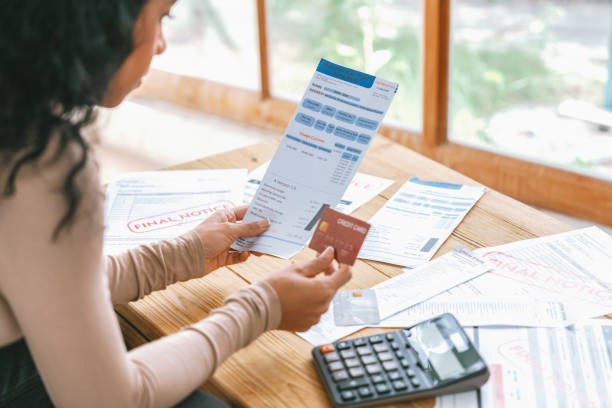When unexpected events arise in life that bring an immediate financial hurdle, quick access to funds could be the difference between calm problem solving or being full of stress and uncertainty.
In times like these, we often think of two common options: using a credit card or applying for a personal loan. Both can help, but can make your way easier differently, and select the right often your requirements, replacement, and how you plan to move forward with your finances.
A credit card allows you to use immediate purchasing power; This can be particularly useful if you have a small expense or conditions where paying in installments over a short period is understandable.
Whereas a personal loan helps with a lump sum amount that you can repay in structured monthly installments. Understanding that each task can help you decide which route is best supported without adding unnecessary stress.
Reasons for the Popularity of a Personal Loan
When a financial crisis hits, it seems like every choice is more critical, and the right kind of funding can be the difference. A personal loan can offer a sense of stability in an otherwise unpredictable time. Its benefits are not just about getting money quickly—they’re also about the structure and peace of mind it can provide.
Easy accessibility and quick relief
They are typically easy to acquire, with no security or collateral. This simplicity allows you to focus on solving the crisis rather than navigating complex procedures.
- Rapid fund access
Funds from a personal loan can be credited relatively quickly upon approval. This quickness is worth when dealing with urgent situations such as medical treatment, emergency travel, or critical home repairs.
- Flexibility in spending
Unlike other types of financing options that restrict how you can use the money, a personal loan gives you full freedom to allocate funds where they are most needed – be it debt consolidation, healthcare, education, or personal commitments.
- Predictable monthly payments
Usually, with personal loans, you have an agreed repayment schedule, so you will know what you are paying monthly and for how long. This certainty helps in budgeting and minimizes the uncertainty associated with credit card balances, whereby interest charges may change depending on how much you owe from time to time.
How Credit Cards Compare in a Crisis?
Credit cards can be an ideal solution in emergencies and especially for smaller, immediate expenses or circumstances where you can settle everything right away. A credit card is often seen as more convenient when making a direct purchase, as you don’t need any cash withdrawal.
However, the important thing to remember here is that if the repayment extends over a prolong duration, interest charges can add up quickly and add to your total expenses.
A credit card can be helpful when:
- The expense is smaller and manageable in the short term.
- You are comfortable paying off the balance during the next billing cycle, or within two billing cycles.
- The purchase needs to be made immediately without waiting for loan to get approved.
Although they provide flexibility, credit cards are utilised effectively when used with discipline and a clear repayment schedule.
What Can a Personal Loan be Used For?
The versatility of a personal loan means it can cover various needs:
- Medical emergencies: funding treatment, surgery, or recovery costs.
- Home maintenance: fixing urgent electrical, plumbing, or structural problems.
- Debt consolidation: combining multiple high-interest debts into one repayment plan.
- Education expenses: spending on tuition fees, training, or study materials.
- Urgent travel: meeting unexpected family or work-related travel requirements.
Because there are usually no restrictions on its usage, a personal loan can adapt to almost any financial need during a crisis.
Who Should Consider a Personal Loan During a Financial Crisis?
A personal loan would be suitable if:
- You need a lump sum amount to cover an identified need.
- You like to have a set repayment schedule that fits within your budget each month.
- You do not want to drain your savings account or depend only on your credit card limits.
- You would prefer not to promise property as security for funds.
It works well for those who value clear repayment terms and want to manage the financial impact in the long run.
Helpful Tips for Paying Back the Emergency Loan
- Include repayments in your monthly budget so they are treated as a necessary cost.
- Borrow only what is needed to keep repayment amounts and interest lower.
- Mark down due dates to avoid late charges or penalties.
- Make part-prepayments when possible to shorten the loan tenure and save on interest.
Key Takeaway
In a financial crisis, Credit cards are for speed and convenience for small, short-term needs, and personal loans are for structure, predictability and flexibility for bigger or longer-term expenses. Smart banking is realizing that you should look beyond the immediate issue, and consider how your choice will affect your financial health in the months ahead.
By choosing the option that aligns with your repayment ability and personal circumstances, you give yourself the best chance to get through the crisis without taking on unnecessary debt into the future.

0 Comments